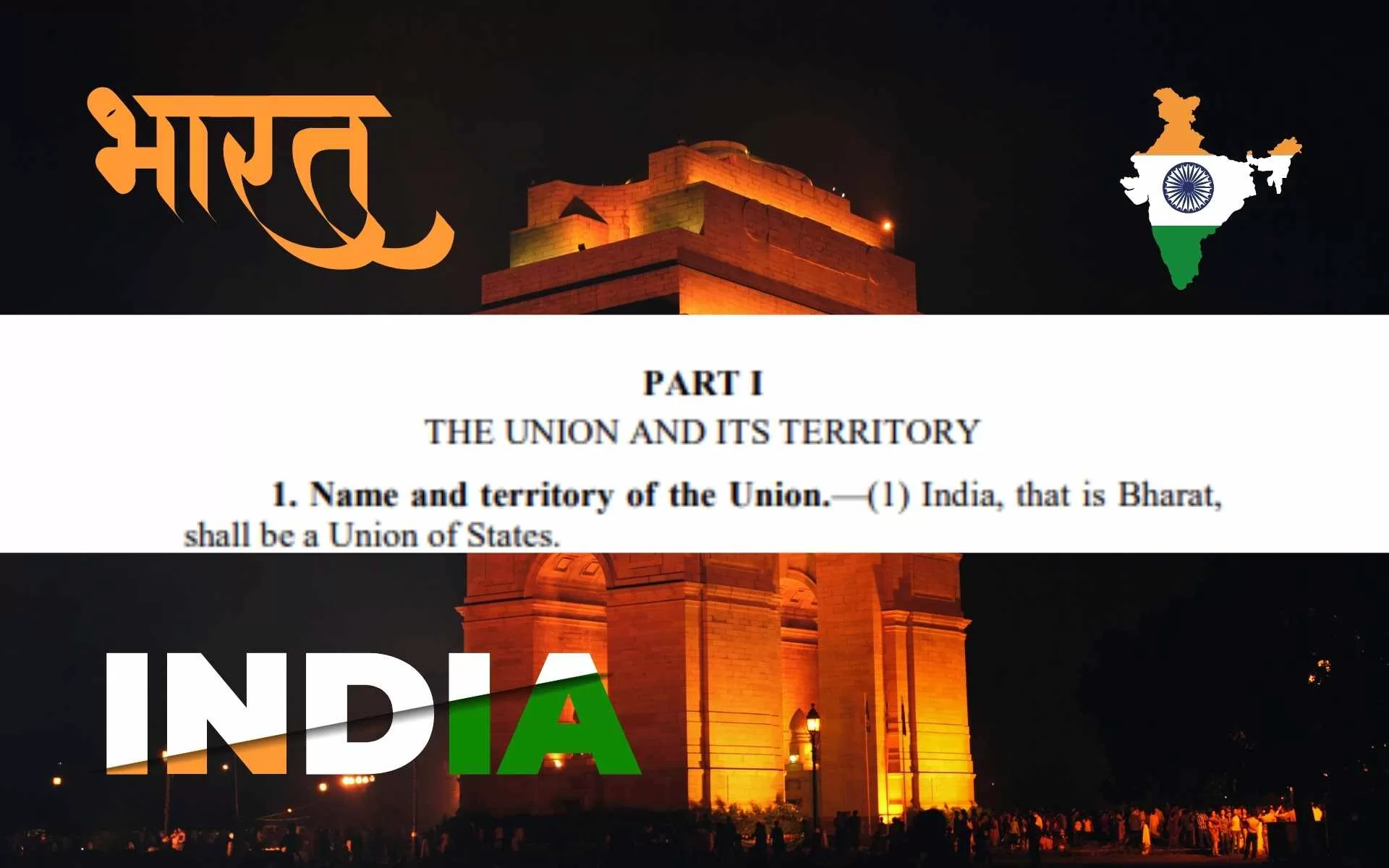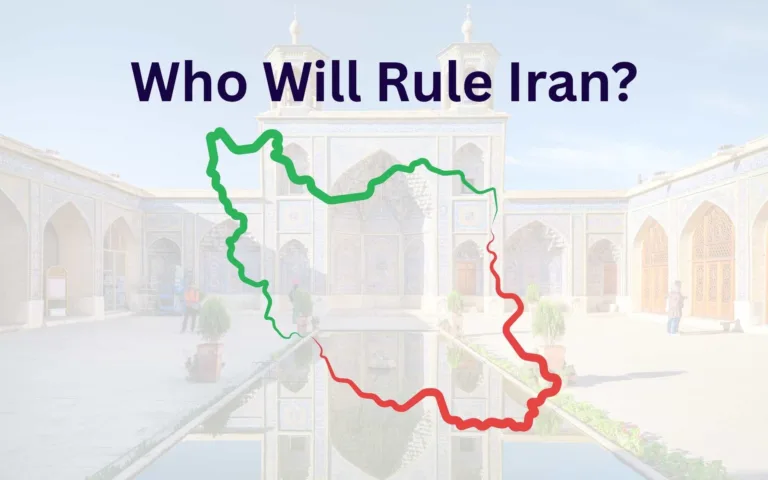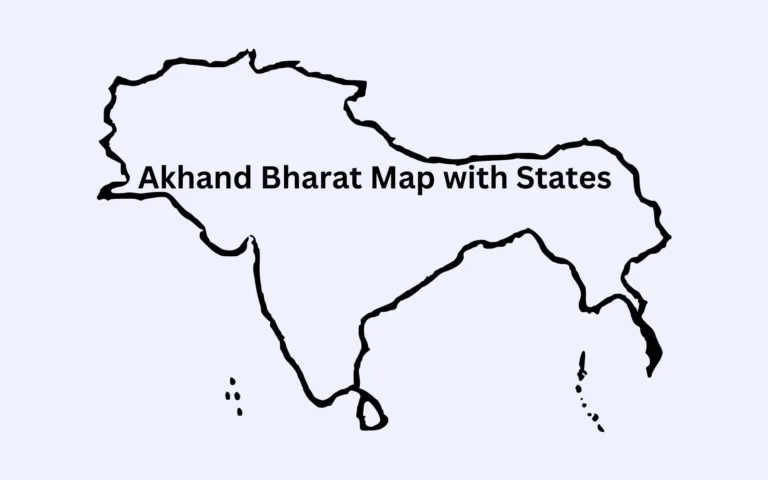The constitution mentions in its first article, the name of the country as: India, that is Bharat. Below is a snapshot of the Constitution’s first article that defines the geographical status of the country.

Table of Contents
Etymology of India
The term India, is of foreign origin, starting from the mis-pronunciation of the word for someone belonging to the area near Sindhu river, or Sindh, as Hind.
The mis-pronunciations were done by ancient Persians and Greeks who came often to trade with the people near the Indus Valley.
The term India has its origin in the Greek word “Indike.”
Historical References
The first mentions were present in the book written by Greek historian Megasthenes who extensively toured the country somewhere during the 4th century BCE. Although the book does not survive, bits and fragments are available which are sourced from other books.
Megasthenes was the Greek Ambassador of Seleucid ruler Seleucus I Nicator, to the court of Chandragupta Maurya.
Etymology of Bharat
India has been known by its ancient name, Bharat, referring to a land inhabited by all people, socially and culturally tracing their roots to the Indian Civilization.
The name, Bharat has been used in all of its official languages, though with minor variations, for denoting the country since the ancient time.
Rig Veda
The Rig Veda mentions in the 18th Shloka(stanza) of the 7th Mandala(book), the term Bharat along the narration of the Battle of Ten Kings, Dasharajana.
Here, there is mention of the King Sudasa from the Trtsu Dunasty of the Bharata clan, which decisively won the battle gaianst the ten kings. The battle took place near the present-day rive Ravi.
Vishnu Puran
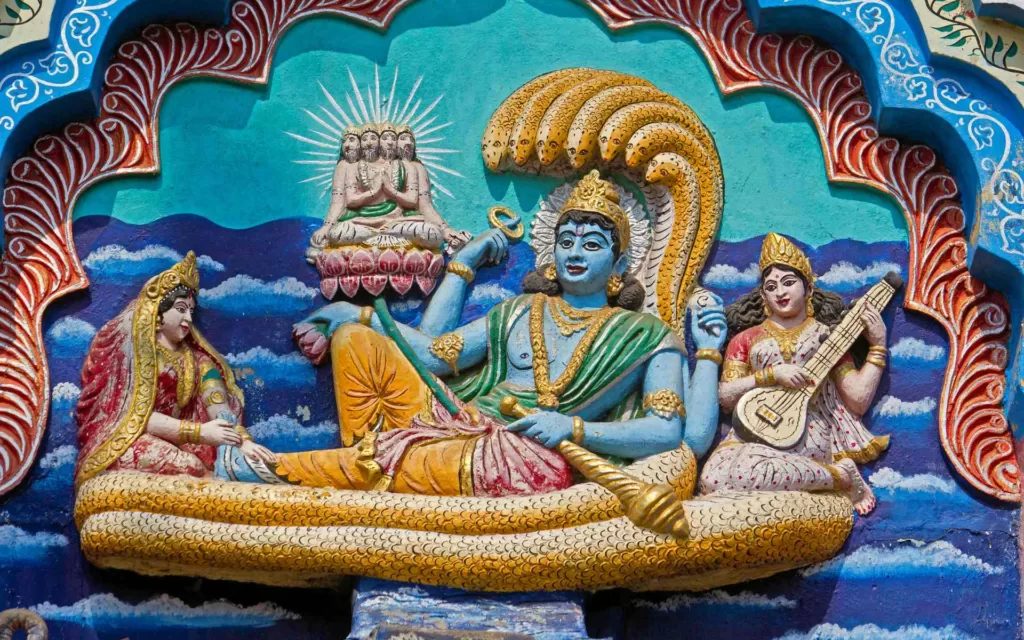
The Vishnu Puran (2,1,31) mentions:
ऋषभो मरुदेव्याश्च ऋषभात् भरतो भवेत्।भरताद् भारतं वर्षं, भरतात् सुमतिस्त्वभूत्
Which means Rishabh was the son of Bharata and Marudevi. Rishabh is also known as Ikshvaku, the progenitor of the dynasty in which Lord Ram was born.
Another shloka in the Vishnu Puran says:
“उत्तरं यत्समुद्रस्य हिमाद्रेश्चैव दक्षिणम् । वर्षं तद् भारतं नाम भारती यत्र संततिः ।।”
That means, the country (or varsham) lies north of the great ocean and south of the snowy mountains, is called Bharatam, where the descendents of Bharata dwell.
Jain Dharmic Texts
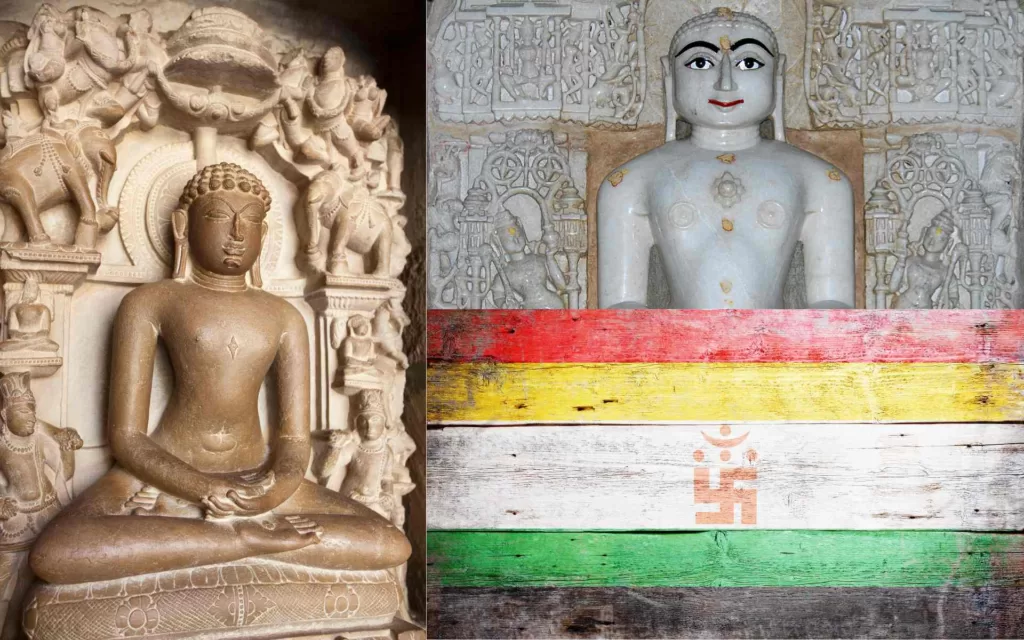
Texts belonging to the Jain religion says that Bharat Chakravarti (Emperor Bharat), was the son of Rishabadeva, the first Jain Tirthankar. Corroborating the text mentioned in the Vishnu Puran.

